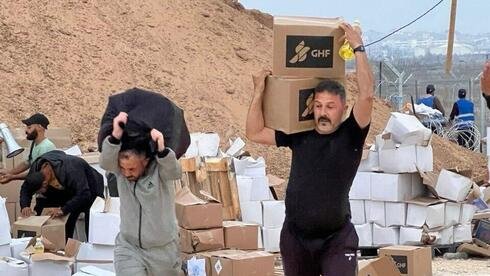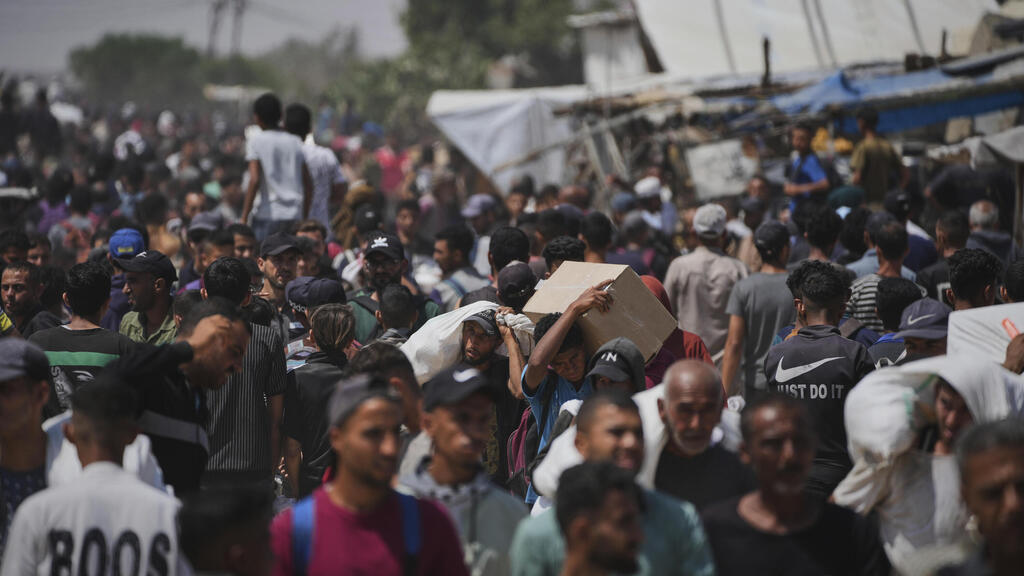One of the texts that was obtained from a GHF employee said: “Continuing on this path will lead to severe consequences.”
“We are fully aware of what you are doing, and your every move is being closely monitored,” the threatening message continued. “We will not forgive your involvement in projects that damage the dignity of our people and serve suspicious agendas under the guise of humanitarian work. You will bear full responsibility for the consequences of your actions.”
The aid foundation, which distributes prepackaged meals, hygiene kits and medical supplies through special centers coordinated with Israel, said Saturday that Hamas had made “direct threats” against its teams, rendering continued operations too dangerous. As a result, the centers remained closed that day.
Despite the threats, GHF resumed operations on Sunday, reporting that it had distributed a total of 1,157,760 meals at its designated sites—including, for the first time, through direct delivery to local communities. Eleven food trucks were dispatched for distribution to community leaders and merchants north of Rafah, carrying 10,560 boxes containing approximately 609,840 meals.
“We are continuing to adapt and improve our operations to ensure the safety of the people we serve," Acting GHF CEO John Acree said. "We recently opened a dedicated line for women and children to guarantee they also receive assistance, and today we piloted our first direct-to-community distribution. Every day, we look for new ways to improve and deliver aid to those who need it most.”
GHF has faced significant challenges since launching its operations in Gaza. According to the organization, Hamas has been attempting to regain control over aid distribution systems it previously exploited to advance its own objectives, at the expense of the local population. The threats, the foundation says, were “the reason hundreds of thousands of hungry Gazans were not fed” the day the aid sites were shut.
Still, the foundation emphasized: “We will not be deterred. We remain committed to safe, secure, and independent aid delivery. We are actively adapting our operations to overcome these threats and fully intend to resume distributions without delay."
Meanwhile, around 400 aid trucks remain stalled on the Gazan side of the Kerem Shalom crossing, as the United Nations currently refuses to coordinate their transfer.


